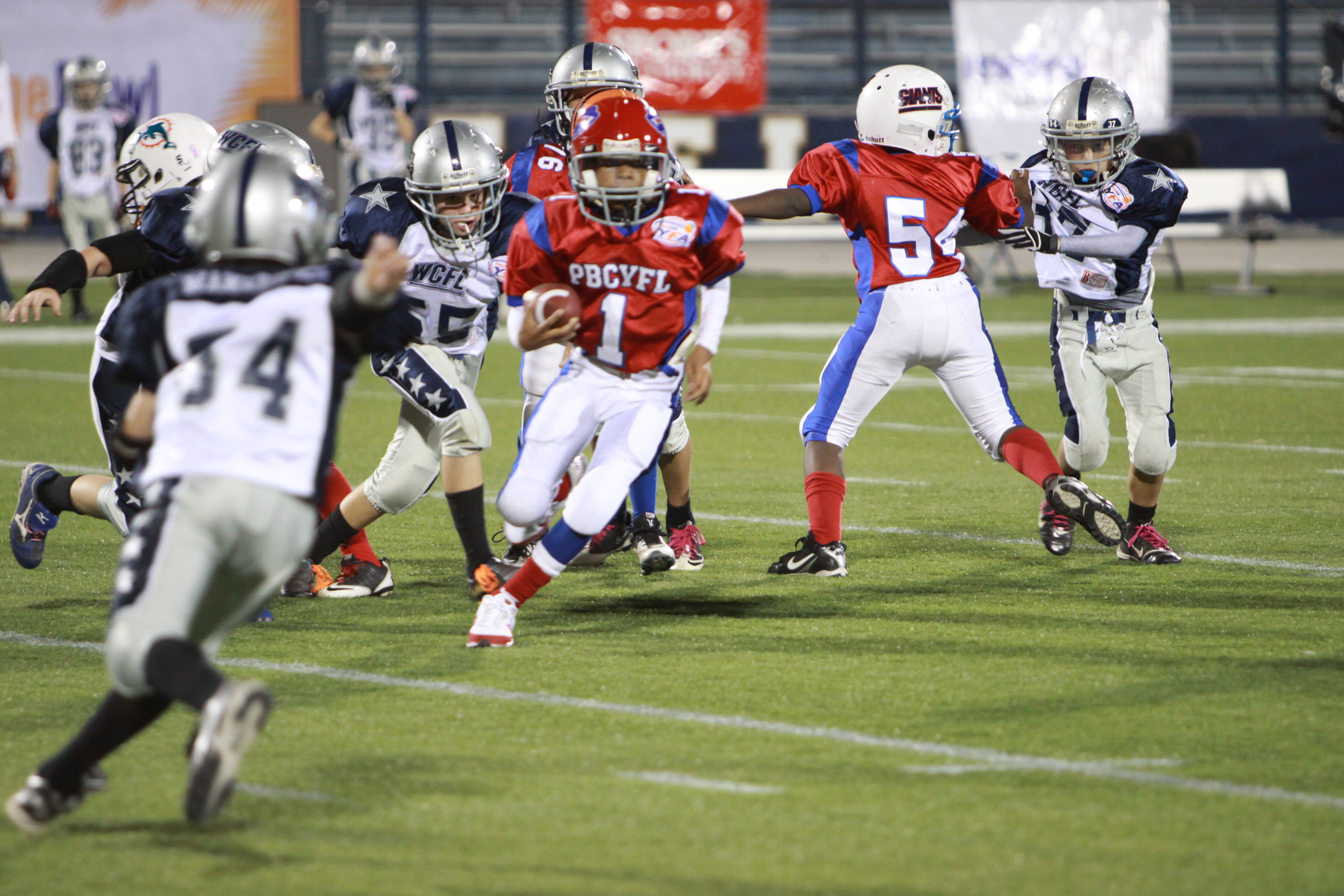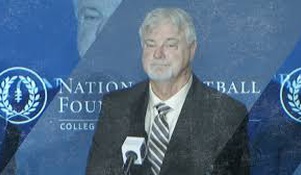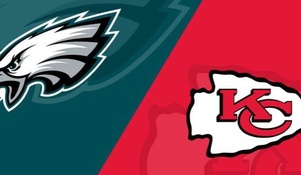To Play or Not to Play? That's not even a question for prospective NFL players

All over the country the battle lines are being drawn. Defenders and detractors of the game of football are making a case for continuing the sport, or completely shutting it down. Some, like myself, would prefer a happy medium, where they continue to make the game safer without turning it into touch football.
So who are some of the people involved in the debate?
Former players who regret playing, wives of former players, former fans, Mothers against Concussions, Doctors and just about everyone that has blood coursing through their bodies.
Even the President of the United States has weighed in on this subject - and like all good politicians, he does a great job riding the fence. He said that if he had a son, he wouldn't let him play professional football, but goes on to say "These guys, they know what they're doing. They know what they're buying into. It is no longer a secret. It's sort of the feeling I have about smokers, you know?"
Is the NFL worried that the President spoke out about this issue? Apparently not. They posted his comments on the NFL.com website.
Articles have been published that are both for and against football. Here’s a great Wall Street Journal story entitled "In Defense of Football"
On the other side of the argument you have researchers like, Dr. Bennett Omalu, the forensic pathologist that discovered CTE, who wrote an op-ed piece for the New York Times entitled Don’t Let Kids Play Football. In the article he says that children should be prevented from playing football and other high-impact contact sports before the age of 18.
The critics of letting young people play football seem to be getting their message across. After years of steady growth, Pop Warner Football saw participation drop 9.5 percent between 2010-12. I read stories like this, but then I read other stories like this one: Youth Football, Despite Reported Declines, Is About As Popular As Ever.
In the case of very young athletes, the decision to play, or not to play football, is being made by their parents. Some of them have been influenced by Dr. Bennett Omalu, but one of his closest colleagues, neurosurgeon Dr. Julian Bailes has endorsed youth football. He believes that recent rule changes made at all levels of football have reduced the risks associated with the sport. “I’m a big believer in the benefits of organized sports and the benefits of football. I have two children who play football and I believe football is safer than it’s ever been. Dr. Bailes said the risk of CTE Chronic Traumatic Encephelopathy comes from pro football players slamming into each other thousands of times over the course of years, and not from the kinds of hits that children inflict on each other in a few Pop Warner seasons."
So what does all this mean for the NFL? And now that everyone knows the risks of playing football, are players deciding not to play in the NFL? The answer is a resounding NO.
In an April 29, 2012 article, Mike Florio of Pro Football Talk said "One of the biggest hurdles facing the former players suing the NFL for concussions suffered during their playing careers arises from the claim that the NFL failed to warn the players regarding the risks of concussions. The NFL undoubtedly will defend that specific allegation by arguing that, even if warnings had been issued, the players would not have stopped playing football. Supporting that contention will be the fact that no NFL player has retired due to fear of potential harm from concussions. Yes, some have retired due to the immediate consequences of multiple concussions. But no NFL player, current or prospective, has passed on playing football at its highest level due merely to the fear that the player may suffer one or more concussions that may cause problems for him later in life.”
Although I disagreed with Florio’s legal argument in my article “Mike Florio’s Pro Football Talk is cheap on concussion lawsuit,” he was right about what he said in the last underlined sentence of that paragraph: No player has passed on playing in the NFL out of fear of being injured. Some players, like Chris Borland, walked away from the NFL, but only after they had already sustained several concussions. I am not aware of any college football players (drafted by the NFL) that said no thanks, I might get a concussion and develop CTE.
In response to Borland’s retirement, Jeff Miller, the NFL's senior vice president of health and safety policy, said “Playing any sport is a personal decision. By any measure, football has never been safer and we continue to make progress with rule changes, safer tackling techniques at all levels of football, and better equipment, protocols and medical care for players. Concussions in NFL games were down 25 percent last year, continuing a three-year downward trend. We continue to make significant investments in independent research to advance the science and understanding of these issues. We are seeing a growing culture of safety."
Jeff Miller is absolutely right. The League has taken measures to make the game safer. Unfortunately, all the misinformation surrounding CTE is still causing a lot of people to question whether football should be banned - especially at the younger levels of play.
In the Newsday article I previously referenced, Dr. Bailes said that the large number of former NFL players who have been diagnosed with CTE come from those players’ brains being selected for research specifically because those players showed symptoms of brain damage. "Those that have been tested were those who the family brought forward after death thinking that they had CTE, thinking they were symptomatic, thinking they were showing signs and symptoms, so it’s a very skewed, very biased sample if you look at it scientifically or epistemologically. We don’t know the real prevalence. I have said and I believe that CTE is a risk in a minority of NFL players and hopefully in a group of players who are in a now bygone era, meaning that the reforms in the NFL that began in 2009, as a result of our work and others’ work, has resulted in sweeping changes.”
Dr. Bailes was citing the research conducted by Ann McKee at the Boston Center for the Study of CTE. At one time, Dr. McKee was being accused of trying to kill the sport of football, but in the following article she is lauded as the “Woman who would save football.” McKee is concerned with understanding what causes CTE in some players and not others, as well as in developing a baseline test for CTE in the living.
Before we can answer the question: To play or not to play? We first need to separate the hype from the science. Only then can we make good personal decisions.
I don’t know what the future holds for Pee Wee, Pop Warner or High School Football, but one thing is certain. As long as College Football Scholarships are offered and the NFL continues to pay a minimum salary of $450,000 to rookies and an average salary of over $2 million, there will always be a long line of players willing to sacrifice their bodies and brains to entertain the masses.






